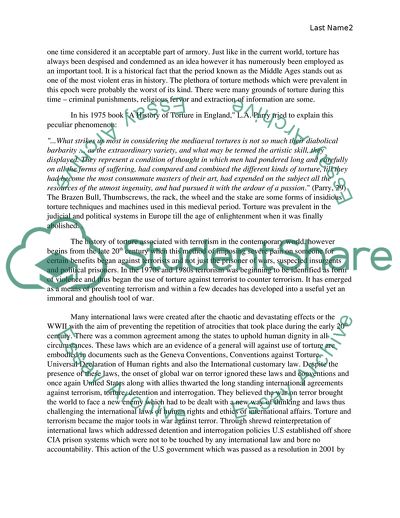Cite this document
(The Ethical Dilemma of Using Torture to Counter-Terrorism Literature review Example | Topics and Well Written Essays - 1500 words, n.d.)
The Ethical Dilemma of Using Torture to Counter-Terrorism Literature review Example | Topics and Well Written Essays - 1500 words. https://studentshare.org/history/1810670-executive-summary
The Ethical Dilemma of Using Torture to Counter-Terrorism Literature review Example | Topics and Well Written Essays - 1500 words. https://studentshare.org/history/1810670-executive-summary
(The Ethical Dilemma of Using Torture to Counter-Terrorism Literature Review Example | Topics and Well Written Essays - 1500 Words)
The Ethical Dilemma of Using Torture to Counter-Terrorism Literature Review Example | Topics and Well Written Essays - 1500 Words. https://studentshare.org/history/1810670-executive-summary.
The Ethical Dilemma of Using Torture to Counter-Terrorism Literature Review Example | Topics and Well Written Essays - 1500 Words. https://studentshare.org/history/1810670-executive-summary.
“The Ethical Dilemma of Using Torture to Counter-Terrorism Literature Review Example | Topics and Well Written Essays - 1500 Words”. https://studentshare.org/history/1810670-executive-summary.


